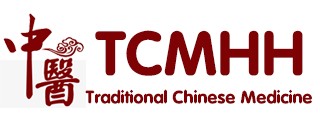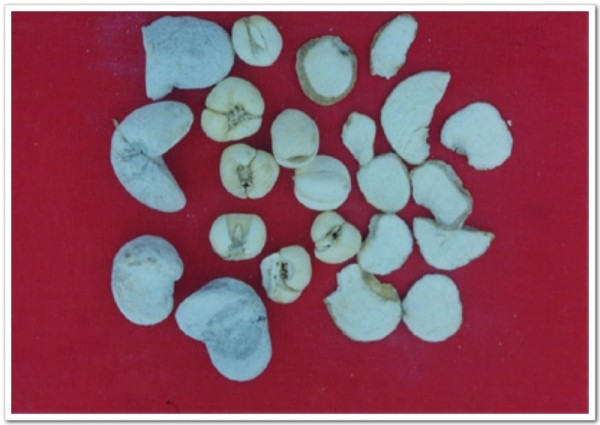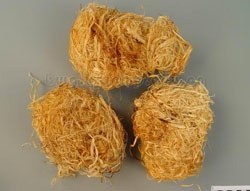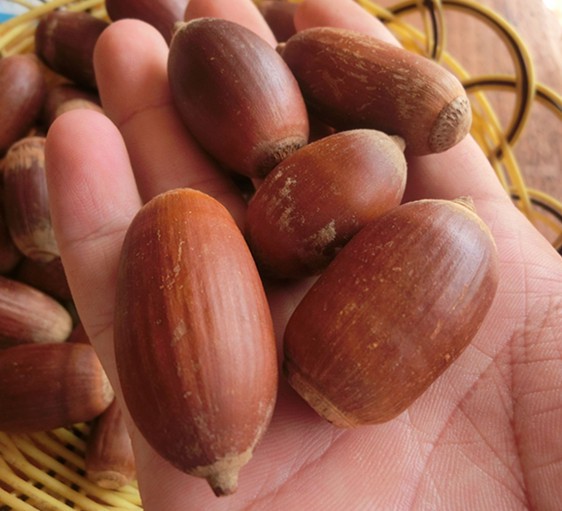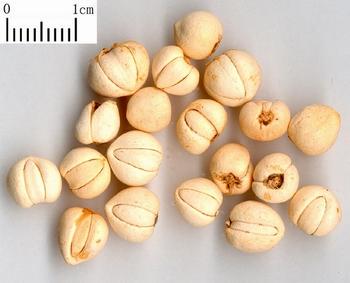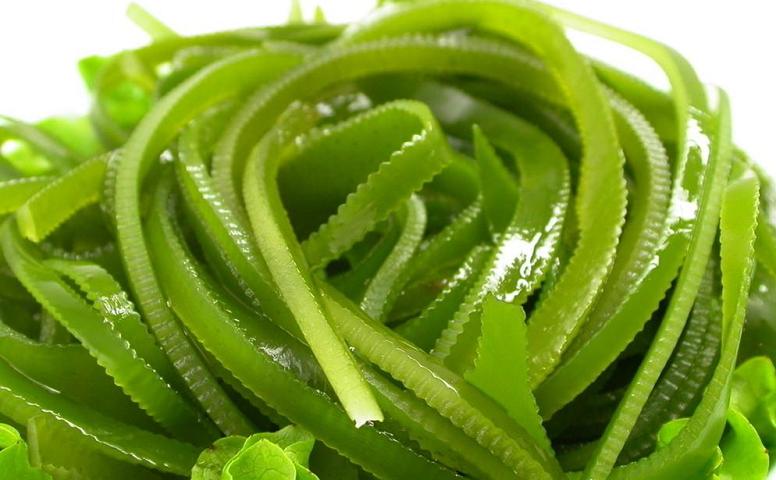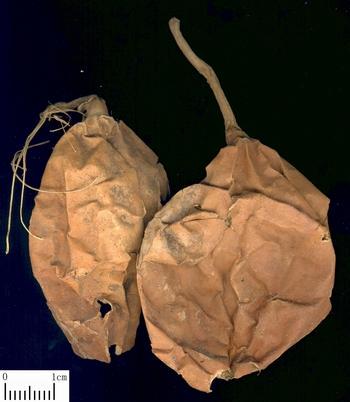
Naming
Gua Lou (Fructus Trichosanthis)——Shen Nong Ben Cao Jing (Shen Nong’s Herbal)
The Processing of 瓜蒌
Origin
The dry ripe fruit of perennial herbaceous vine plant Trichosanthes kirilowii Maxim. or T. rosthornii Harms of family Cucur-bitaceae.
Location
Hebei, Henan and Anhui provinces in China.
Harvest
Collected in autumn when the fruit ripens.
The actual smell and taste
Burnt sugar smell, lightly sour and sweet taste.
Best quality
Complete without broken, thick pericarp, wrinkle with fiber, heavy, full of sugar.
Processing
Unprocessed or made the kernel into frost.
The Effect of 瓜蒌
Property
Sweet, lightly bitter, cold; lung, stomach and large intestine meridians entered.
Actions
Clear heat and resolve phlegm, moisten and resolve dry-phlegm, open chest and dissipate accumulation, moisten intestine and relax bowel.
Indications
A. Cough and dyspnea due to heat-phlegm, cough due to dry-phelgm
This herb is sweet, cold and moist in property. It is good at clearing lung heat, moistening dryness of lung to resolve heat-phlegm and dry-phlegm. For productive cough and dyspnea due to lung heat, it is singly used in Run Fei San from Xuan Ming Lun Fang to clear lung and resolve phlegm. For exuberant phlegm manifested by cough, dyspnea, yellow phlegm difficult in expectoration and stuffiness and fullness of chest, it is combined with heat-phlegm-clearing and resolving herbs. For instance it is combined with Dan Nan Xing, Huang Qin and Zhi Shi, etc. in Qing Qi Hua Tan Wan from Yi Fang Kao (Verification of Medical Prescription). For dry-heat damaging lung manifested by non-productive cough or scanty and sticky phlegm with difficulty in expectoration, it is also combined with lung-clearing and dryness-moistening herbs, and phlegm-resolving antitussives. For instance it is combined with Tian Hua Fen and Chuan Bei Mu recorded in Yi Xue Xin Wu.
B. Chest impediment, thoracic accumulation
This herb can resolve phlegm and promote qi flow to obtain the action of easing chest and dissipating nodulation. So it is mostly indicated for fullness, oppression and distending pain of chest caused by obstruction of combination of phlegm and qi. For angina pectoris and dyspnea unable to lying down, it is usually combined with yang-invigorating and accumulation-dissipating herbs as well as qi-moving and phlegm-resolving herbs. For instance it is combined with Xie Bai and Ban Xia in Gua Lou Xie Bai Ban Xia Tang from Jin Kui Yao Lue. For phlegm-heat accumulation of chest manifested by stuffiness and fullness of chest with tenderness, it is combined with heat-clearing, phlegm-resolving and damp-dying herbs. For instance it is combined with Huang Lian and Ban Xia in Xiao Xian Xiong Tang from Shang Han Lun.
C. Lung abscess, intestine abscess and acute mastitis
This herb can clear heat, dissipate accumulation and resolve swelling. For abscess and swelling due to heat-toxin, it is usually combined with heat-clearing and toxicity-relieving herbs or blood-activating and stasis-resolving herbs. For instance it is combined with Yu Xing Cao, Lu Gen and Bai Jiang Cao for hematemesis with pus. For abdominal pain due to intestine abscess, it is combined with Bai jiang Cao and Hong Teng. For the first stage of acute mastitis manifested by red, swelling, hot and pain of breast, it is combined with Dang Gui, Ru Xiang and Mo Yao in Shen Xiao Gua Lou San from Fu Ren Da Quan Liang Fang.
D. Constipation due to dryness of intestine
Gua Lou Ren is moist in property and can moisten dryness with laxation to relax bowel. So it is indicated for constipation due to dryness of intestine. It is usually combined with intestine-moistening and bowel-relaxing herbs such as Huo Ma Ren, Yu Li Ren and Jue Ming Zi, etc.
Dosage and Administrations
Decoct 10~20g of whole Gua Lou, Gua Lou Pi 6~12 g, Gua Lou Ren 10~15 g smashed.
Cautions
It is prohibited for loose stool due to spleen deficiency because of its sweet, cold and slick property. Contraindicated to Wu Tou.
